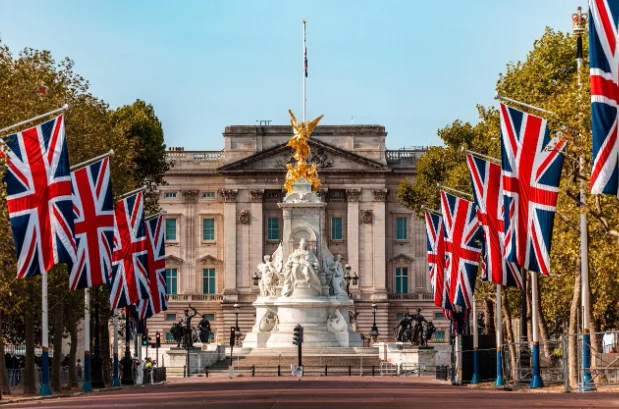Across the UK, and especially in cities like London, ordinary Britons are beginning to ask questions that would have been unthinkable just a decade ago. Is London safe to visit? Is Britain still the country we recognise? Who is standing up for the values that built this nation?
These are not paranoid or fringe questions—they are reflections of a deep cultural shift, one that has left many British citizens feeling alienated in their own country. As public trust in government declines and communities see major changes without consultation, the need for patriots—people willing to defend British culture, law, and identity—has never been greater.
Real Stories, Real Frustrations: What’s Driving the Patriots’ Protest?
The Patriots’ Protest is not a movement born from abstract ideology—it has been ignited by real stories, in real communities, where ordinary people feel ignored, dismissed, and undermined.
One of the most widely cited grievances among protest participants stems from the massive pro-Palestinian marches that have taken place in central London and other major cities. While these demonstrations were often allowed to proceed with full police facilitation—despite featuring chants and banners many viewed as incendiary—patriotic protests faced tighter restrictions, heavier policing, and were sometimes dismissed by media outlets as “far-right.” For many, the perceived leniency shown to controversial foreign causes, while home-grown concerns are suppressed or condemned, is symbolic of a government and policing system that has lost its moral compass.
One turning point came in Epping, Essex, where residents were blindsided to learn that the Bell Hotel—a long-standing community landmark—was to be used for housing asylum seekers. There was no prior consultation, no vote, and no transparency. Locals reported a sharp increase in anti-social behaviour (following the arrest of an asylum seeker for sexual assault), and fears began to spread among families with young children.
Meanwhile, in Islington, central London, the use of the Thistle City Barbican Hotel for migrant housing without any input from local residents raised alarm bells. A group of residents posted an open letter to the council, asking simply: “Why weren’t we consulted?” They received no public reply.
Across social media platforms, livestreams from protests have revealed a common thread: people feel that their country is changing rapidly, and that their voices are not welcome in the debate. Many say they never considered themselves “political” before, but that the constant sidelining of British voices pushed them to act.
The Decline of British Values
For generations, Britain stood tall as a beacon of freedom, law and order, free speech, hard work, and mutual respect. These were not abstract ideals—they were lived values that united people from all walks of life.
Today, however, those values are under siege. From the erosion of free speech in the name of “tolerance,” to rising crime rates in our capital, the foundations of British society are being chipped away. If you’re asking, is London safe to visit? you’re not alone. Londoners themselves are asking the same question.
Patriotism, once considered a virtue, is now dismissed by many in the political and media class as outdated—or worse, dangerous. But loving your country is not dangerous. In fact, it’s the very thing that holds a country together when the seams begin to fray.
What Is a Patriot—and Why We Need More
A patriot is someone who cares enough about their country to defend it—its people, its traditions, its future. Patriots are not extremists. They are your neighbours, your postmen, your shopkeepers, your veterans, your teachers. They are people who believe that Britain is worth preserving.
And in this climate, Britain needs more of them.
We need more citizens willing to stand up to the hollowing-out of our national identity. We need more voices defending the Union Flag, rather than apologising for it. We need more ordinary people prepared to say, “This isn’t working,” when they see their local pub turned into a migrant shelter or crime figures spiking in areas that were once peaceful.
The question “Is London safe to visit?” is not just about crime. It’s about confidence. Do people feel secure, represented, and protected? Increasingly, the answer is no—and patriots are the ones daring to say it out loud.
Patriots’ Protest: A Voice for the Silenced Majority
The recent rise of the Patriots’ Protest across the UK is not just a moment—it’s a movement. From Epping to Manchester, local communities are taking a stand against opaque immigration policies and rapid cultural shifts imposed without consent.
They are asking questions that millions silently share: Why are hotels being filled with asylum seekers while British veterans sleep rough? Why are ordinary residents finding themselves priced out, policed selectively, and labelled bigots for expressing concern?
And yes, they are asking, is London safe to visit?—not as a throwaway line, but as a serious question about what has become of Britain’s once-great capital.
Reclaiming British Identity—Without Shame
One of the most powerful elements of the Patriots’ movement is its refusal to be shamed into silence. For too long, displaying a Union Flag has been treated by some institutions as an act of aggression. Patriotism has been slandered as racism, and any critique of immigration policy is met with cries of intolerance.
But the tide is turning.
Ordinary people are beginning to realise that there is nothing wrong with being proud of your country, and that defending your way of life is not hateful—it’s responsible. This is not about division. It’s about preservation.
And when tourists and Brits alike begin wondering, “Is London safe to visit?” it should be a wake-up call—not an opportunity to gaslight the public with statistics. Crime may be down on paper, but if people feel unsafe, then something is fundamentally broken.
The Role of the Media and Political Class
Much of the anger expressed by patriots is not just about migration or crime—it’s about being ignored. Mainstream politicians seem more interested in pleasing global audiences than listening to their own constituents. The media often mocks or misrepresents protestors who speak out, painting concerned parents and ex-servicemen as extremists.
This disconnect is fuelling resentment—and it’s also fuelling resolve. Patriots are not just reacting to what they see; they’re reacting to what they’re being told they cannot say.
If we continue down this path, the question will no longer be “Is London safe to visit?” but rather, “Is Britain governable by consent anymore?”
Building a Future Worth Passing On
The ultimate aim of the patriot movement is not destruction—it is preservation. Patriots want a future for their children that reflects the values they grew up with: safety, fairness, free speech, and national pride.
They want to walk through London or Manchester without having to ask, “Is it safe to visit?” They want neighbourhoods where people speak the same language, share common values, and look out for one another. They want borders that mean something, schools that teach history with pride, and leaders who put Britain before globalism.
In short, they want to pass on a Britain that is recognisably British.
Time to Stand Up (Before Time Runs Out)
Britain is at a crossroads. One path leads to further silence, submission, and slow cultural erasure. The other leads to resilience, responsibility, and a return to the values that made this nation great.
The Patriots’ Protest may be a controversial chapter in British history—but it is a necessary one. It asks difficult questions, including that all-important one: is London safe to visit? If the answer is not a confident yes, then something needs to change.
And it won’t change unless more people stand up—not just to protest, but to participate. Britain needs patriots now more than ever—not to tear it down, but to build it back up.






